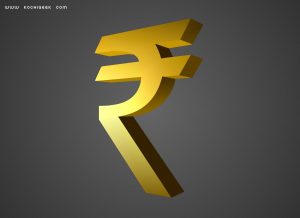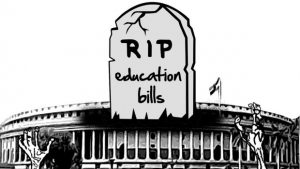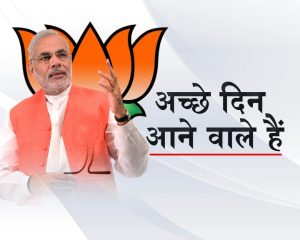 Analysis paralysis or Policy Paralysis is a situation of over thinking a situation so that a decision or action is never taken; it is a way of slowing down the process, in effect paralyzing the result. Normally a policy paralysis takes place when a decision is treated as over-complicated, with too many detailed options, so that a choice is never made, rather than trying something in time. When decisions are kept waiting, in the course of time major problem arise. A person might be seeking the optimal or “perfect” solution upfront, and fear making any decision which could lead to invalid results, when on the way to a better solution.
Analysis paralysis or Policy Paralysis is a situation of over thinking a situation so that a decision or action is never taken; it is a way of slowing down the process, in effect paralyzing the result. Normally a policy paralysis takes place when a decision is treated as over-complicated, with too many detailed options, so that a choice is never made, rather than trying something in time. When decisions are kept waiting, in the course of time major problem arise. A person might be seeking the optimal or “perfect” solution upfront, and fear making any decision which could lead to invalid results, when on the way to a better solution.
The phrase describes a situation where the opportunity cost for making a decision exceeds the benefits that could be gained. In other words, the sheer qualitative and quantitative analysis of decision making is purposely made complicated that it overwhelms the decision maker thus preventing him/her from taking a decision. In Organizational Behavior it is regarded as a dysfunctional behavior.
The BJP released its manifesto in April 2014, prior to the Loksabha Elections, focusing on improving the country’s economy and infrastructure, ending policy paralysis and curbing corruption.
A classic case of policy paralysis is during the tenure of UPS Government in September 2012, the bill of Foreign Direct Investment (FDI) in multi-brand retail was tabled – in this case Carrefour, a 76-billion-euro retail giant which was then interested in setting its India operations, now has reportedly decided to draw curtains on its plans on account of lack of clarity on the future of FDI policy in multi-brand retail in India. How ugly Parliament proceedings can become? Different opposing political parties ran amok disrupting parliamentary proceedings. Well, everyone gets chance to opine his/her decision in parliamentary democracy, everyone gets a chance to shoot questions, yell, disrupt the speaker, and incongruously in this case the crossfire was untidy. I am yet to understand what political dogmas are all about? What resulted subsequently was advancement in retail.
(FDI) in multi-brand retail was tabled – in this case Carrefour, a 76-billion-euro retail giant which was then interested in setting its India operations, now has reportedly decided to draw curtains on its plans on account of lack of clarity on the future of FDI policy in multi-brand retail in India. How ugly Parliament proceedings can become? Different opposing political parties ran amok disrupting parliamentary proceedings. Well, everyone gets chance to opine his/her decision in parliamentary democracy, everyone gets a chance to shoot questions, yell, disrupt the speaker, and incongruously in this case the crossfire was untidy. I am yet to understand what political dogmas are all about? What resulted subsequently was advancement in retail.
The $170 billion, crude oil and petroleum products constitute 35% of our import bill. It has been common knowledge that with disturbances persisting in central and west Asia international prices of crude oil are sky-rocketing. The region has been in turmoil for many years now but the Indian government did not take any proactive measures. In the absence of sufficient oil reserves, the government should be looking at alternative sources of energy. This is a case of worrying policy paralysis since past decade. The crude oil prices have gone up in international market and India has to import crude to meet its fuel needs. But, the burden on common man can be reduced by correctly adjusting import duty and excise duty. It is a fact that this crisis has been aggravated by the government’s failure to ramp up domestic production. What kind of progress can we expect for fuelling the economy?
 The Indian rupee has been experiencing a sliding fall in the last couple of years; the government continuously kept assuring the markets that it was only a deviation but the reality is different. And this is not a recent phenomenon. It touched a record low near 69 to a dollar in August 2013, and the government did not just fail to take proactive measures but also failed to react appropriately to tackle the crisis. The external factors did contribute to the currency crisis. They were just additions to the internal problems which the government failed to recognize and eliminate. Domestic factors such as food inflation, continuous petrol price hikes, and deranged policies of the government made the investors (both domestic and foreign) insecure of the situation, they then started selling off the rupee. We witnessed so many foreign institutional investors (FIIs) pulling their funds out, and some good domestic businesses at once decided to flock to foreign countries in search of better business opportunities. This reverse flow of capital out of the country resulted because of two reasons — corruption and deficit in governance.
The Indian rupee has been experiencing a sliding fall in the last couple of years; the government continuously kept assuring the markets that it was only a deviation but the reality is different. And this is not a recent phenomenon. It touched a record low near 69 to a dollar in August 2013, and the government did not just fail to take proactive measures but also failed to react appropriately to tackle the crisis. The external factors did contribute to the currency crisis. They were just additions to the internal problems which the government failed to recognize and eliminate. Domestic factors such as food inflation, continuous petrol price hikes, and deranged policies of the government made the investors (both domestic and foreign) insecure of the situation, they then started selling off the rupee. We witnessed so many foreign institutional investors (FIIs) pulling their funds out, and some good domestic businesses at once decided to flock to foreign countries in search of better business opportunities. This reverse flow of capital out of the country resulted because of two reasons — corruption and deficit in governance.
Gold is another commodity that has led to the ballooning of our import bill. We are the largest consumer pocket of gold and even with 17 gold mine fields in the country; gold is our second largest imported commodity. We as a nation are ‘Gold Obsessed’. This yet again highlights the policy paralysis and lack of foresight of the government which has failed to think of innovative ways to explore domestic gold. And instead, all it does is increase the import duty on the commodity.
even with 17 gold mine fields in the country; gold is our second largest imported commodity. We as a nation are ‘Gold Obsessed’. This yet again highlights the policy paralysis and lack of foresight of the government which has failed to think of innovative ways to explore domestic gold. And instead, all it does is increase the import duty on the commodity.
In an ideal world, good governance rarely faces policy paralysis. Procrastinating decisions on flimsy grounds, adjournment of decisions to please some one, too many clauses and sub clauses, heaps of statistical data for analysis, appointing committees and sub committees (too many heads), and hidden agendas create only disruption in decision making; thus, paralyzing policies. It is an abuse to our progress.
 Some progressive nations in the world are eliminating age-old customs and functions in parliaments. Canada is looking at including elements of proportional representation for parliamentary constituencies; it potentially illustrates every seat competitive. The British parliament introduced one day a week for general debates, with no voting required. It also empowers various committees to offer policy advice, produce reports or alter legislation. MPs discuss and debate without overriding background noise and un-parliamentary language is not permissible. Now that’s really bringing grace to the parliament.
Some progressive nations in the world are eliminating age-old customs and functions in parliaments. Canada is looking at including elements of proportional representation for parliamentary constituencies; it potentially illustrates every seat competitive. The British parliament introduced one day a week for general debates, with no voting required. It also empowers various committees to offer policy advice, produce reports or alter legislation. MPs discuss and debate without overriding background noise and un-parliamentary language is not permissible. Now that’s really bringing grace to the parliament.
Public committees have been empowered to take decisions with provisions for oral and written evidences on most government bills. Thus improving public participation and reinforce parliamentary scrutiny. These governments take briefings by outside organizations and experts before passing bills. These and some more moves are created to establish permanent expert legislation committees which would provide practical experience in shaping a bright future.
oral and written evidences on most government bills. Thus improving public participation and reinforce parliamentary scrutiny. These governments take briefings by outside organizations and experts before passing bills. These and some more moves are created to establish permanent expert legislation committees which would provide practical experience in shaping a bright future.
Back home, If the government plays it role of ensuring favorable environment for smooth operation of the market economy and serve the interests of citizens by protecting them from the worst extremes of the market – this without paralyzing polices every now and then we the people of this nation will say “achchhe din aaye hai”.













































